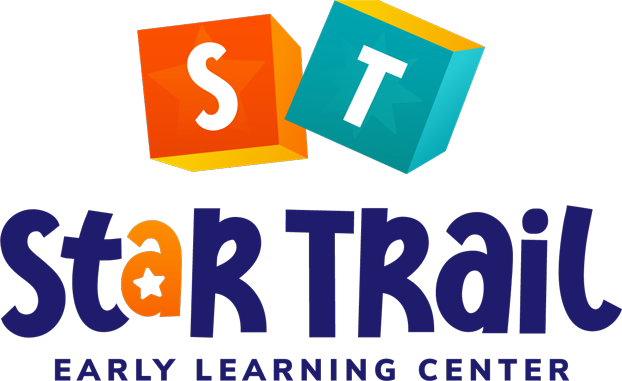Our Programs
Star Trail Elc Offers Quality Childhood Education In Lekki
Our Curriculum is a blended curriculum with EYFS as a base. Our approach to early childhood education is one that focuses on active learning, child-initiated play, and development of essential life skills.
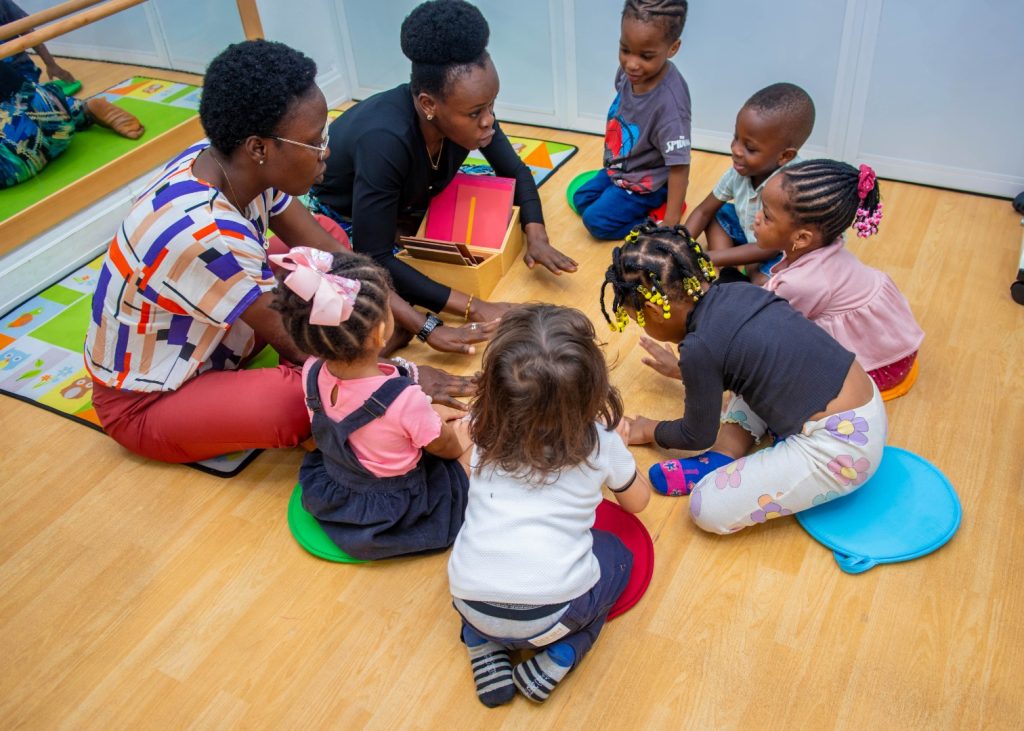
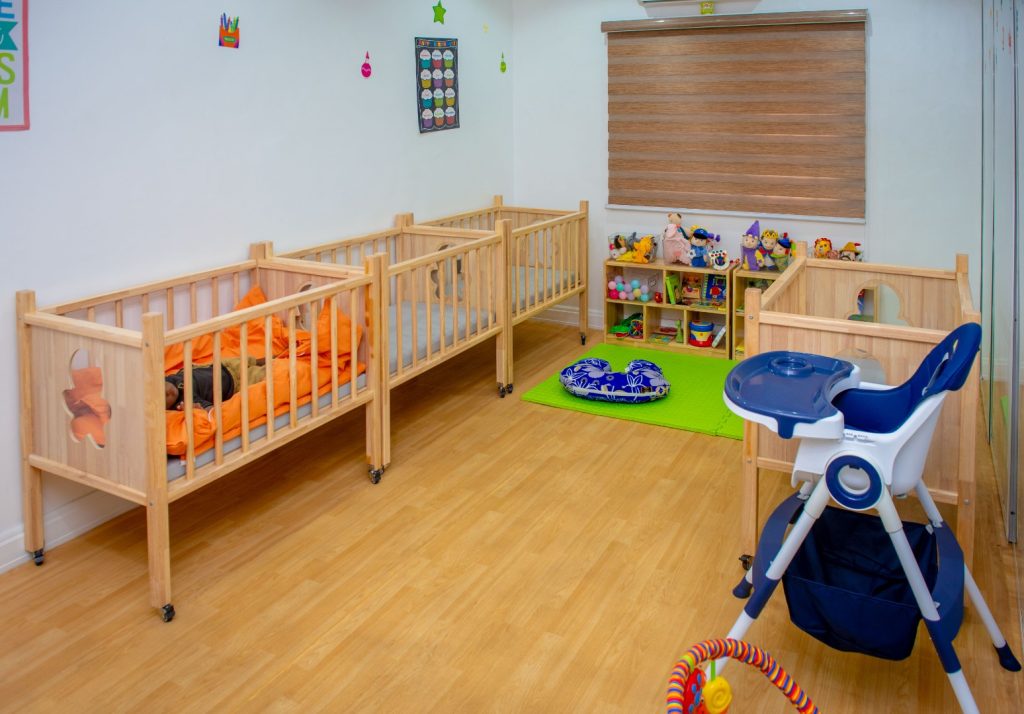
Infants
(6 months to 15 months)
At Star Trail, we recognize that even infants are active learners. Our dedicated teachers provide a safe and stimulating environment where infants can explore their surroundings and engage in sensory experiences. Caregivers respond to infants’ cues and provide warm and responsive interactions, fostering secure attachments. In our infant program, dedicated teachers focus their entire day on catering to these young ones. They not only fulfill the fundamental requirements of nourishment, diaper changes, and sufficient rest but also exceed them.
Infant routines, such as feeding and diapering, are seen as valuable learning opportunities for building relationships and language development. The daily routines serve as the learning framework for your child. Each instant in a young child’s day is ripe with learning possibilities. Our educators seize these instances, aiding each infant in developing trust, fostering discovery, and nurturing self-esteem. Moreover, your child’s teacher assists in developing motor skills, unlocking the potential of language, and helping your child navigate and comprehend the world from various perspectives.” Caregivers document infants’ experiences through observations, photos, and anecdotes, allowing for individualized planning and reflection.
Toddlers
(18 months to 3 years)
At Star Trail Early Learning School, we understand that toddlers are striving for independence. Our teachers honor this by providing chances for children to take responsibility and make their own choices. Toddlers are encouraged to make decisions within a structured and supportive environment.
We set developmentally suitable behavior expectations that challenge the children while ensuring they feel the teacher’s support. With patience, warmth, and respect, we guide toddlers in managing their impulses and actions. Caregivers provide a variety of hands-on materials and activities that promote exploration, problem-solving, and creativity. Small-group experiences encourage social interaction, cooperation, and language development. Caregivers support toddlers in developing conflict resolution skills and encourage peer interactions.
Daily routines and transitions are planned to be consistent and predictable, promoting a sense of security and independence. Recognizing the significance of routines, we use these times as opportunities for learning about self and others. Play is considered a crucial learning activity by our staff, who encourage it to keep children engaged and to progress from basic to more intricate learning and play dynamics.
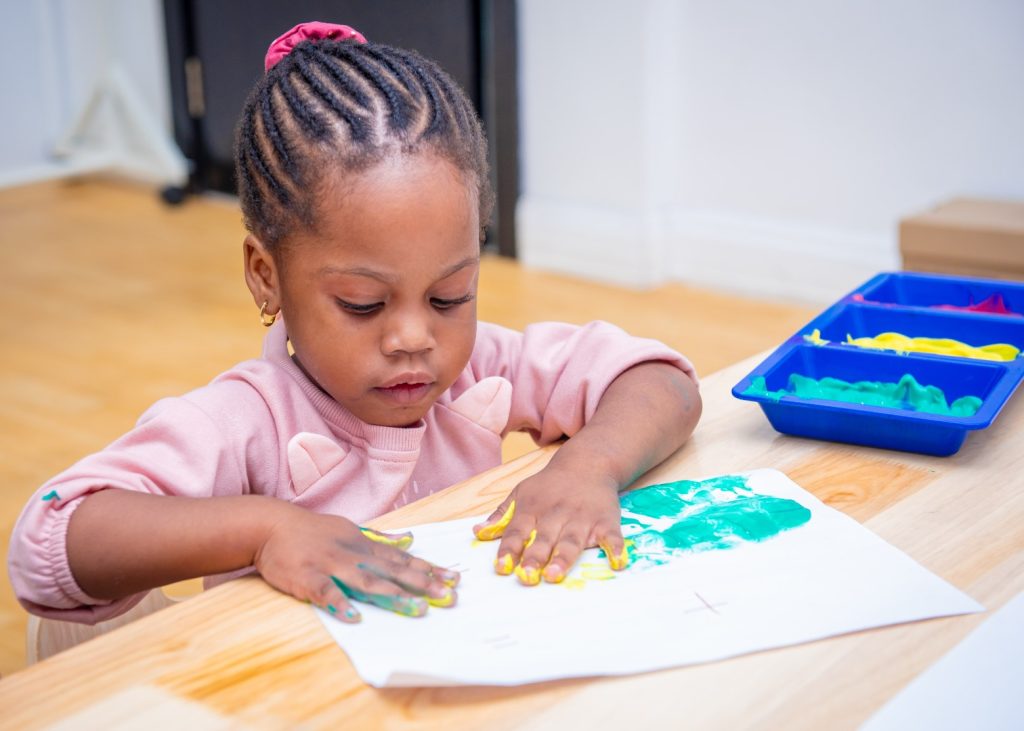
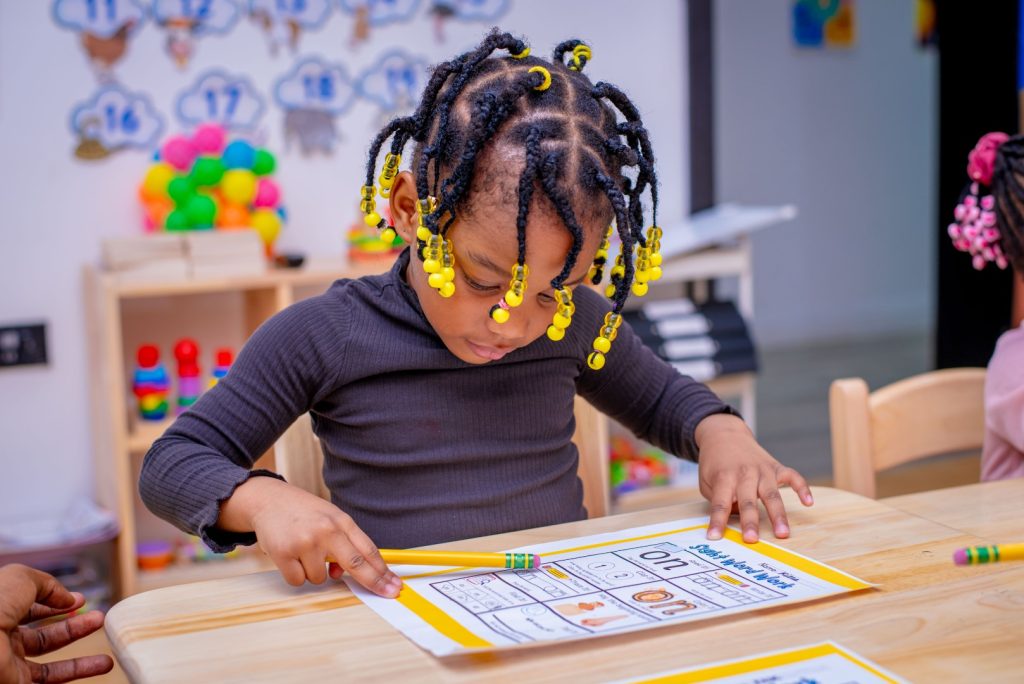
Preschool
(3 years to 5 years)
This year marks a significant phase for our young learners as they are introduced to fundamental educational skills using an adaptive curriculum design, where we modify our curriculum to meet the diverse needs of our students, ensuring each child receives a personalized learning experience.
As parents, you will witness your child’s development and advancement. Preschoolers will become familiar with numbers, letters, and shapes. More importantly, they will learn social skills: interacting with peers, sharing, and participating in group activities. Preschool is also a time for children to develop their sense of identity, engage in exploration, play with friends, and build self-confidence. Children at this stage realize their abilities to perform tasks independently, from simple activities like caring for a plant or setting up snack tables, to more complex ones like making choices on how to utilize their free time. Even as they grow more autonomous, they remain immersed in foundational education.
While young children are certainly capable of learning letters and numbers, traditional ‘teaching’ methods are not always our approach. They thrive when engaged in activities that interest them, such as storytelling, conversing with classmates, and block play. To foster language development and pre-reading skills, we incorporate rhyming games and encourage children to narrate stories. Remember, at this age, school is primarily about enjoyment and developing interpersonal skills, rather than strictly academic achievements.
